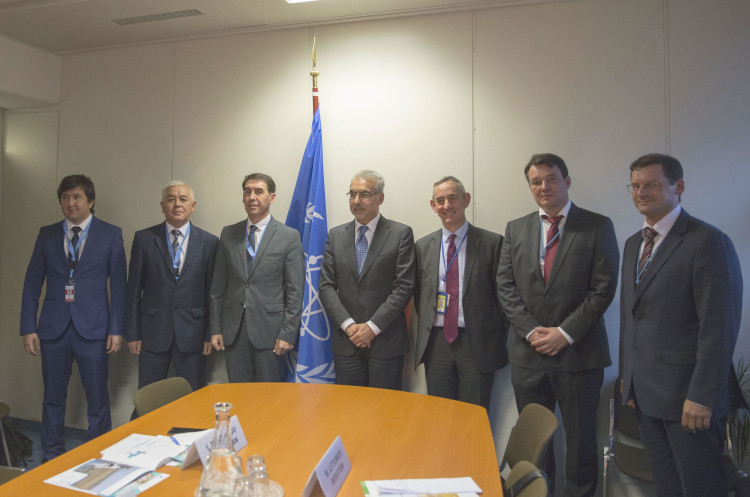The IAEA and partners including the European Commission (EC) and the European Bank of Reconstruction and Development (EBRD) signed a joint commitment this week on coordinating efforts to achieve the safe and sustainable environmental remediation of Uranium Legacy Sites (ULS) in Central Asia, in accordance with a new Strategic Master Plan (SMP). The outlines of the SMP, which has just been finalised, are available here.
Uranium mining and processing were prevalent in Central Asia from the mid-1940s to the 1990s, when planning for end-of-life management was not common. As a result, residues of radioactive and toxic contaminants pose ongoing threats to the health and the livelihood of people in the region, as do abandoned mines and processing infrastructure.
The SMP provides a framework for carrying out remediation activities in Central Asia in a timely, cost-effective and sustainable manner. It was developed with the Central Asian countries by core members of the IAEA’s Coordination Group for Uranium Legacy Sites (CGULS), which was formed in 2012 to help coordinate national and multilateral ULS remediation activities in Central Asia.
Parties involved in the project, including the EBRD, the EC, the Kyrgyz Republic, Tajikistan and Uzbekistan attended a signing ceremony in Vienna during a side event of this week’s 61st regular session of the IAEA General Conference.
“Our cooperation aims to help the people in the communities affected by the uranium legacy sites. We are working together to help create a safe environment for current and future generations,” said IAEA Deputy Director General Juan Carlos Lentijo, Head of the Department of Nuclear Safety and Security. “Effective coordination will help ensure that remediation will be addressed in a timely, cost-effective and sustainable manner.”
Disclaimer: The SMP was produced with the financial assistance of the European Union. The views expressed herein can in no way be taken to reflect the official opinion of the European Union.
This activity is conducted by the IAEA, with funding by the European Union.




